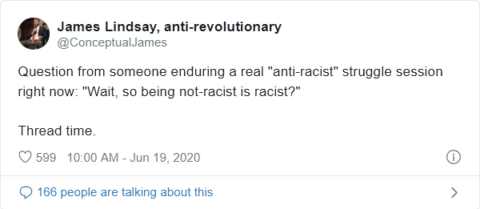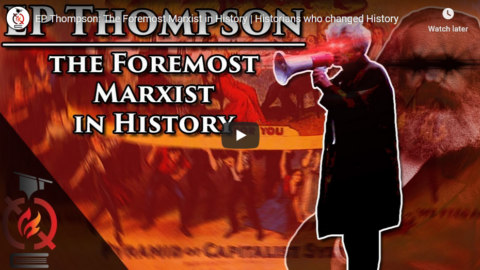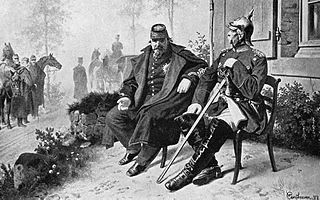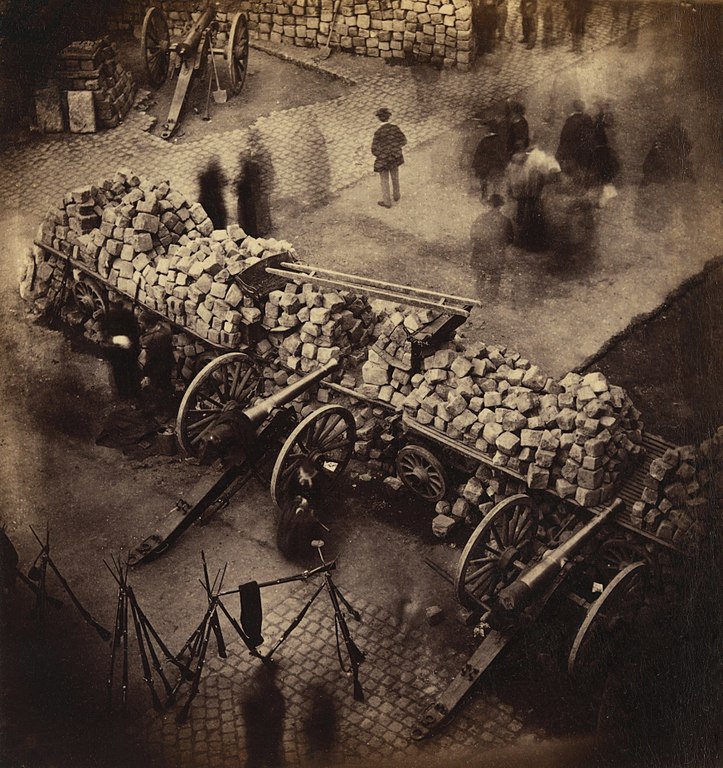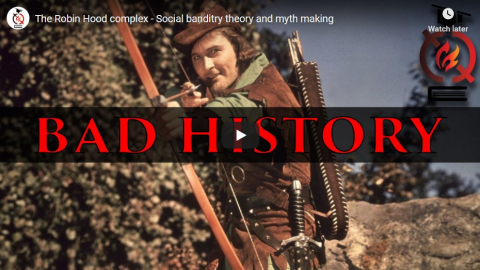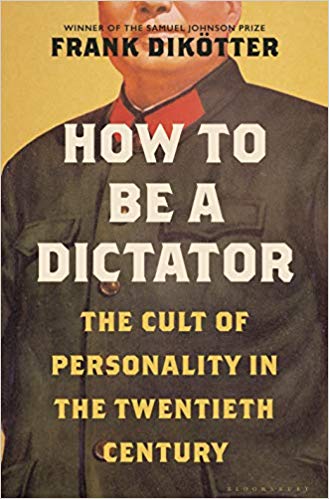realtimehistory
Published 12 Jul 2021Support Glory & Defeat: https://realtimehistory.net/gloryandd…
After Napoleon I had conquered and then lost Europe, France went through multiple revolutions. In 1851, Napoleon’s nephew and French president Louis-Napoléon Bonaparte took control and in 1852 crowned himself Emperor Napoleon III. The new French Empire wanted to regain the glory of Napoleon’s uncle and together with his wife Empress Eugenie he ruled a state known for lavish balls and spending.
» OUR PODCAST
https://realtimehistory.net/podcast – interviews with historians and background info for the show.» LITERATURE
Arand, Tobias: 1870/71. Die Geschichte des Deutsch-Französischen Kriegs erzählt in Einzelschicksalen. Hamburg 2018Arand, Tobias/Bunnenberg, Christian (Hrsg.): Karl Klein. Fröschweiler Chronik. Kriegs- und Friedensbilder aus dem Krieg 1870. Kommentierte Edition. Hamburg 2021
Gouttman, Alain. La grande défaite de 1870-1871. Paris 2015
Herre, Franz: Eugénie. Kaiserin der Franzosen. Stuttgart, München 2000
Rieder, Heinz: Napoleon III. Abenteurer und Imperator. München 1998
» SOURCES
Bonaparte, Prince Napoléon-Louis: Des Idées Napoléoniennes. London 1839Marx, Karl: Der achtzehnte Brumaire des Louis Napoleon. Hamburg 1869
Maupassant, Guy de: Bel-Ami. Paris 1901
N.N. (Hrsg): Fontane, Theodor. Aus den Tagen der Okkupation. Eine Osterreise durch Nordfrankreich und Elsaß-Lothingen 1871. Berlin (Ost) 1984
» OUR STORE
Website: https://realtimehistory.net»CREDITS
Presented by: Jesse Alexander
Written by: Cathérine Pfauth, Dr. Tobias Arand, Jesse Alexander
Director: Toni Steller & Florian Wittig
Director of Photography: Toni Steller
Sound: Above Zero
Editing: Toni Steller
Motion Design: Philipp Appelt
Mixing, Mastering & Sound Design: http://above-zero.com
Maps: Battlefield Design
Research by: Cathérine Pfauth, Prof. Dr. Tobias Arand
Fact checking: Cathérine Pfauth, Prof. Dr. Tobias ArandChannel Design: Battlefield Design
Contains licensed material by getty images
All rights reserved – Real Time History GmbH 2021
July 29, 2021
In The Shadow of Napoleon – The 2nd French Empire Before 1870 I GLORY & DEFEAT
May 31, 2021
“For four generations our culture and education has been in the hands of an unholy hybrid of Marxism and Rousseau’s Romanticism”
In the most recent edition of the Libertarian Enterprise, Sarah Hoyt regrets not learning some traditional — manual — skills when she was younger, and how children today are even worse served by the education system:
… there are are other things. I mean, husband and I to an extent were thrown in to the world with no clue how to do the most basic things, like home maintenance or how to clean with proper products, how to take care of clothes, how to do anything with our savings other than let it sit in the bank, how to organize and sort files and records. It goes on. (I do still tend to use bleach for most things. It’s cheap. I have at least learned what it will damage.) Our first ten years of marriage would make a good sitcom, as they had a repeating pattern: figure out we need to do something; extrapolate how it can be done; invest untold amount of time and effort into doing thing; find out after that it can be done in a simpler and cheaper way. And then people wonder why I curse.
And so many times, we just come up on something that must be done — even now — and have no clue how to get to the place where we can even think about how to do it. Teaching the kids what we never learned has been fun, too.
Heck, even in my religion — and I taught it was a young woman — I keep coming across these massive gaps where no one ever taught me what to do or why. As for the education my kids got: pfui.
In the same way, I’ve spent most of my adult life learning history, grammar, natural science and the basics of things that I supposedly learned the advanced form for with my degree, but without anyone ever teaching me the fundamentals.
Kind of like part of my degree is the study of literature but until I read Dwight Swain’s Techniques of the Selling Writer I’d never realized that books are composed of conflict and reaction units. (No, not physical conflict, though heck, you could sell that.) Instead I tried to fit them into the structure of plays and wondered why it wasn’t working.
Because no one had ever taught me the basics. I mean, I knew how to do a lot of advanced things, even as a beginning writer. I just had no clue how to do the basic things. And it showed.
For four generations our culture and education has been in the hands of an unholy hybrid of Marxism and Rousseau’s Romanticism. (The two are related in that both believe that natural man left to his own devices creates paradise.)
I can understand how those scarred by the long war of the 20th century would decide that they were going to ditch all the evil bad things in civilization and let the children grow up “naturally” so they would be sweet and innocent angels. (Spit.) I understand but I don’t forgive. If they thought what they saw in the war was the result of Western Civilization, they’d never studied other civilizations or for that matter hid in a playground and watched the children be “natural”.
Then the cascade started. People who only half learned could only half teach. On top of which the doubts instilled in them about the purpose of civilization made them teach less than half. And the next generation knew less. And then less.
More than once, as an inquisitive student, I’d go to my teacher and ask why something worked the way it did or didn’t work the way they said, only to be given a glib explanation I knew was wrong. I must have been 11 the first time I realized the teacher had no more clue than I did. (This was a good thing. It set me on a path of researching and investigating on my own.)
By the time my kids were in school it had become more so, partly because to justify themselves, and abate the feeling they were incompetent, people derived entire theories on why they shouldn’t learn the basics, learning the basics was bad, and you could be so much better by learning naturally.
I don’t have enough words to revile the “immersion” method of language learning, particularly was applied in our schools. Yes, sure “but the military used it” – yeah, but the military could enforce LIVING in the language. It also — which seems to elude most people — does teach people grammar and vocabulary in formal classroom settings.
[…]
Part of the unlearning are people who never learned enough to realize what works and what doesn’t trying to do things in ways that only work for a very few highly gifted individuals. That’s how we got whole word, new math, total immersion, whateverthehelltheyretryingnow all of which involved “less work for teachers” and the vague hope that unschooled children, or children who learned “naturally” were just somehow “better”.
Kind of like what would happen if I decided my digit dyslexic, half-baked way with wood meant my making, say, a table that was lopsided and wobbly made the table better and more authentic.
April 25, 2021
April 24, 2021
QotD: Marxism and the teenage mind
Marxism just seems right to teenagers of all ages. Teenagers’ only frame of reference is their parents, and to the inexperienced — as all teenagers by definition are — even the best parents seem willful and capricious, if not outright tyrannical. (The gray, wrinkled teenagers who refuse to learn merely substitute “society” for “their parents” in their emotional incontinence). Teenagers live in a weirdly binary world, where the switches can only be “on” or “off,” yet all terms are undefined.
That’s why the worst thing a teenager can think of is “unfair.” It’s wrong because it feels wrong, and anything that’s wrong must be somebody’s fault — again, how could it be otherwise? Parents can’t afford to let their kids learn big lessons the hard way. Literally can’t afford it, in that teenagers can’t see why, for example, you can’t take that turn at 85 mph on an icy road. You can explain it to them until you’re blue in the face, but as anyone who has spent any time around teenagers knows, there’s a large subset of them that will simply refuse to get it. Alas, those tend to be the brighter ones, and so a large part of the subtle art of teenager management is setting up smaller, less catastrophic situations for them to fuck up, such that they hopefully learn by analogy. Which is still, of course, the grownups’ fault …
A big part of growing up, then, is: realizing that not everything is someone’s fault. Every effect has a cause, that’s a simple truth of logic, but not every event has a cause. The real world, grownups know, is what Buddha said it is, a nexus of causes and conditions. Even the simplest event has innumerable proximate causes, necessary-but-not-sufficient conditions, and so on. If you want to argue, in terms of pure logic, that every event is an intersection of a long series of causal chains that are all, in theory, perfectly discoverable, go nuts, but for all practical purposes, shit just happens. Accepting that is one of the foundation stones of adulthood.
From that perspective, one’s youthful Marxism seems silly, and nothing seems sillier than Marx’s endless ranting against the perfidy of “the capitalists.” Just as your parents aren’t really the capricious tyrants you thought they were when they wouldn’t let you use the car on Friday night, so even the biggest of businessmen are just people. Marx paints them as cartoonishly evil, but though a guy like Andrew Carnegie was a real bastard in his youth, no doubt about that, he too grew up, becoming a staunch philanthropist and anti-imperialist. So, too, with the labor theory of value, which is the closest thing to the quintessence of the teenage mind ever put to paper — those Air Jordans are “overpriced,” no one denies that, but it’s simply not true that selling $5 shoes for $200 is “exploitation.” There’s this thing called “demand,” and … well, you get it.
Severian, “Marx Was Right After All (on ongoing series”, Rotten Chestnuts, 2021-01-12.
April 16, 2021
March 23, 2021
QotD: Marx was right … but not about the proletariat
Karl Marx, damn his rotten soul, was right. Or, more accurately, his followers made him right. The Proletariat never achieved class consciousness on their own. Nor did they do it with the assistance of the Vanguard Party, like Lenin thought. In fact, they only did it — incompletely; they’re in the process of doing it now — with the assistance of a bunch of drooling idiots who can’t even spell “Karl Marx.” I’m speaking, of course, of the Apparat, the managerial class, the iron rice bowl perma-bureaucracy that runs the Imperial Capital.
Those fuckheads achieved class consciousness here in the last 30 years, and now they’re doing what Marx said the Proletariat would – making Revolution, overturning the system, causing the State to wither away as they pursue their own interests against tradition, religion, all enemies foreign and domestic. Theirs is a “Marxism” boiled down to its essence: Nihilistic, suicidal envy.
[…]
Once they achieve class consciousness, the Revolution is inevitable – Marx was right about that, too. There are only so many places in the Apparat, after all, and the number of talented, ambitious people in the Empire — even now, after a century’s worth of mandatory “education” — far exceeds the number of make-work jobs the Apparat, any Apparat, can support. Provided we survive it, it will be some cold comfort, watching the bewilderment in their faces as they’re lined up against the wall. Ever read Darkness at Noon?
Severian, “Skynet Becomes Self-Aware”, Rotten Chestnuts, 2020-12-11.
February 2, 2021
When the self-defined elites achieved class consciousness
At Rotten Chestnuts Severian adds to his ongoing series of posts identifying areas where Marx was right:
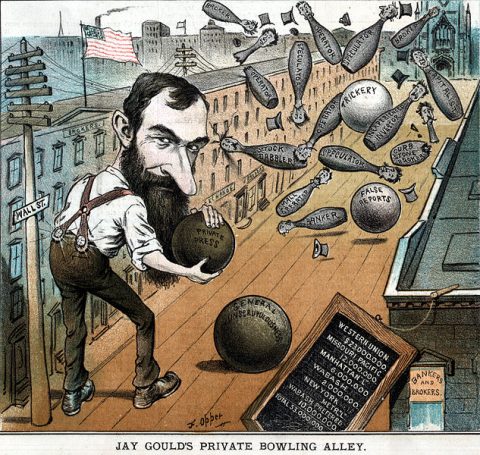
“Jay Gould’s Private Bowling Alley.” Financier and stock speculator Jay Gould is depicted on Wall Street, using bowling balls titled “trickery,” “false reports,” “private press” and “general unscrupulousness” to knock down bowling pins labeled as “operator,” “broker,” “banker,” “inexperienced investor,” etc. A slate shows Gould’s controlling holdings in various corporations, including Western Union, Missouri Pacific Railroad, and the Wabash Railroad.
From the cover of Puck magazine Vol. XI, No 264 via Wikimedia Commons.
… I liken Karl Marx to one of those bird-masked medieval Plague doctors — he sees the pathology clearly, indeed far faster and better than anyone else, but his proposed “cure” is far likelier to kill you than the actual disease. Worse, what makes Marx’s cure especially lethal is what ends up making his diagnosis essentially right: It’s a self-fulfilling prophecy.
The proletariat is achieving class consciousness, all right — look no further than the GameStop “short squeeze” for proof. But the only reason the proles are achieving class consciousness is because the “capitalists” forced them to, just like Marx said they would. The Elite and the Bureaucracy (usually, but not always, a distinction without a difference) finally achieved class consciousness through the combination of NAFTA and the Louvre Accords. Starting around 1990, then, the Elite self-consciously embraced their role as rootless, stateless, jet-setting parasites (with the wannabe-Elites in the Media, academia, and the bureaucracies signing up for tours of duty as fart-catchers, both to bask in reflected glory and in hopes of being promoted).
In short, our “Capitalists” — really, “financial-ists” or “spreadsheet gangsters,” since they don’t actually make anything, they just bust out existing firms via debt manipulation — behave exactly as Marx described factory owners behaving all the way back in the First Industrial Revolution.In my naivete, I used to think Marx’s ranting was hyperbole. I cited the example of Andrew Carnegie — a real bastard in his youth, who went on to be one of the world’s great philanthropists. That’s human behavior, I said, as opposed to the bloodthirsty caricature of Marx’s fantasies … but I was wrong, comrades. Carnegie happily would’ve sold his fellow Americans down the river, just as Bezos, Gates, and the rest of the pirates-in-neckties are happily selling us down the river now. Only two things prevented it back then: one structural, one cultural.
The structural one is simply technology, and therefore uninteresting. Britain’s “free traders” — you know, the Jardine-Matheson types who started the Opium Wars for fun and profit — would’ve happily outsourced Britain’s entire industrial base to China if they hadn’t been hampered by wind speed. By the time this was technically feasible — which is about 1860, if you’re keeping score — simple inertia had taken over. They didn’t retool until they had to, at which point instant communications and modern ships … well, you know the rest. Like I said, it’s vital, but boring.
The cultural one is much more interesting. You might be tempted to say, as I did, that Jardine and Matheson were always on the lookout for #1, of course, but were sincere British patriots for all that, just as Carnegie for all his faults was an authentic American. I doubt it, comrades. I sincerely doubt it. What kept these guys in check wasn’t patriotism, or even culture. Rather, it was fear.
January 22, 2021
QotD: The enclosure movement, in historical fact and in Marxist imagining
Consider, for example, that the tenfold increase [in the population of London] was in the period before the expropriative parliamentary enclosures of Marxist legend, when state fiat was used to deny smaller farmers their ancient, customary rights to use the land near their villages. While the very first of these enclosure acts appeared as early as 1604, parliamentary enclosure only really got going from the mid-eighteenth century. Instead, for the period in question, enclosure happened in a piecemeal way, with the open fields gradually dissolving as farmers exchanged or sold their tiny strips of land, over time amalgamating them into larger, privately controlled plots. With ownership concentrated in fewer and fewer hands, it became relatively easy to gain the unanimity needed to suspend common rights. The process played out in myriad ways all over the country, sometimes with amicable agreement and voluntary exchange, sometimes with ruthless monopolising of the land, with the already-large owners systematically buying out their neighbours. In some cases it involved the consolidation of existing arable land, in others it meant the conversion of forest, heath, marsh, or fen — the traditional “wastes”, to which the poorer villagers might have had various customary rights to gather firewood for fuel, or to graze their cattle, or to hunt for small game — into land that could be used for farming or pasture.
How this process played out all depended on extremely specific, local conditions. But on the whole it was slow — piecemeal enclosure had been happening to varying degrees since at least the fourteenth century. It’s hard to see how such a sporadic and piecemeal process could have led to such consistently and increasingly massive numbers flocking specifically to London. Indeed, the fact that they singled out London as their target suggests that this narrative might have it back-to-front. Some economic historians argue that it was the prospect of higher wages in the ever-growing metropolis that induced farmers to leave the countryside in the first place, selling up or abandoning their plots to those they left behind. Rather than enclosure pushing peasants off the land and into the city, London’s specific pull may instead have thus created the vacuum that allowed the remaining farmers to bring about enclosure. Otherwise, why didn’t the peasants simply flock to any old urban centre? The second-tier cities like Norwich or Bristol or Exeter or Coventry or York would all have been far less dangerous.
Anton Howes, “London the Great”, Age of Invention, 2020-10-20.
November 30, 2020
August 3, 2020
Romanticizing the past
Sarah Hoyt points out that the past really is a foreign country and they do things very differently there … and for good reasons:

An image of coal pits in the Black Country from Griffiths’ Guide to the iron trade of Great Britain, 1873.
Image digitized by the Robarts Library of the University of Toronto via Wikimedia Commons.
So, quickly: The industrial revolution was not a disaster to your average peasant. It was a disaster for landowners.
Yes, yes, the conditions in the factories were terrible. By our standards. The lifespan was very short. By our standards. The anomie of the big cities, yadda yadda. When compared to what? Small villages? Ask those of us raised in them. Yes, there was child labor. As compared to what at that time? Other than the life of the upper classes?
Look, we don’t have to guess about this stuff. In India, in China, in other places that came to the industrial revolution very late, we’ve seen peasants leave the land where their ancestors had labored, to flock to the big cities, to take work we find horrible and exploitative at wages we find ridiculous.
And even if China has added “labor camp” and prisoner wrinkles to it, note that’s because China is a shitty communist country, not because the migration wasn’t there before. Also the labor camp aspects, as much as one can tell (and it’s hard to tell, due to the raging insanity of the regime) seem to have grown as the people grew more prosperous, as a result of the industrial revolution and thereby demanded higher wages, which positioned China more poorly as the “factory of the world.”
In fact, idealizing “living off the land” has been in place since at least the Roman empire, and probably before. It’s also been MISERABLE at least since then and probably before.
Because pre-industrial revolution farming sucked. It sucked horribly. And it kept you on the edge of subsistence. It double sucked when you were subjected to a Lord. Look, systems of serfdom, etc. didn’t come about because living in a Lord’s domain was so great, and everyone wove wreaths and danced around maypoles all the time, okay?
The bucolic paradise of a farmer’s life was mostly a creation of city dwellers, often noblemen, who saw it from the outside.
There are estimations that most people had trouble rearing even one child, and most of one generation’s peasants were people fallen from higher status. I don’t know. That might be exaggerated. Or it might not.
Even during the industrial revolution, it was normal for ladies bountiful to take baskets of food to tenant farmers because … they couldn’t make it on their own.
And btw, the more the industrial revolution pulled people to the cities, the more the Lords and “elites” talked about how great the countryside was and how terrible the factories/cities/new way of living were.
A lot of artists and pseudo bohemians jumped in on this bandwagon and so did Marx, who was both a pseudo bohemian, by birth “elite” (Well, his family had a virtual slave attached to him. He impregnated her too, as was his privilege), and by self-flattery intellectual.
Therefore the factories were the worst thing ever, the men who owned them, aka capitalists were terrible, terrible people — mostly because Marx wasn’t one, and probably because they laughed at him — and the proletariat they exploited horribly would rise up and —
All bullshit of course. Later on his fiction needed retconning by Anthony Gramsci who, having the sense to realize the “workers” weren’t rising up, just getting wealthier and escaping the clutches of the “elites” more made the “proletariat” a sort of “world proletariat” centered on poorer/more dysfunctional countries. This had the advantage of making the exploited masses always be elsewhere (or the supposed exploiters) and therefore made it easier to pitch group against group to the eternal profit of rather corrupt “elites.” Mostly political classes which are descended from “the best people.”
August 2, 2020
QotD: Marx’s imperfect economic understanding
We’re at the 200th anniversary of Karl Marx’s birth – also the 201st of Ricardo’s publication, the 242nd of Smith’s Wealth of Nations. And it has to be said that the latter two were more perceptive analysts of the human condition and also contributed vastly more to human knowledge and happiness. Most of the bits that Marx got right in economics were in fact lifted from those other two. The one big thing he got wrong was not to believe them about markets.
We can find, if we look properly, Marx’s insistences of how appalling monopoly capitalism would be in Smith. They’re both right too, it would be appalling. But we do have to understand what they both mean by this. In modern terms they mean monopsony, more specifically the monopoly buyer of labour. What is it that prevents this? Competition in the market among capitalists for access to the labour they desire to exploit. That very competition decreasing the amount of grinding of faces into the dust they’re able to do. Henry Ford’s $5 a day is an excellent example of this very point.
Ford wanted access to the best manufacturing labour of his time. He also wanted to have a lower turnover of that labour, lower training costs. So, he doubled wages (actually, normal wages plus a 100% bonus if you did things the Ford Way) and got that labour. At which point all the other manufacturers had to try and compete with those higher wages in order to get that labour they wanted to expropriate the sweat of the brow from. Marx did get this, he pointed out that exactly this sort of competition, in the absence of a reserve army of the unemployed, is what would raise real wages as productivity improved.
Smith also didn’t like the setting of wages as it precluded just such competition and such wage rises.
Where Marx went wrong was in not realising this power of markets. He knew of them, obviously, understood the idea, but just didn’t understand their power to ameliorate, destroy even, that march to monopoly capitalism.
[…]
The thing we really need to know on this bicentenary about Karl Marx is that he was wrong. He just never did grasp the power of markets to disrupt, even prevent, the tendencies he saw in capitalism. Specifically, and something we all need to know today, the power of competition among capitalists as the method of improving the lives of all us wage slaves. You know, that’s why we proletariat today, exploited as we are and ground into the dust, are the best fed, longest lived and richest, in every sense of the word, human beings who have ever existed. Something which is, if we’re honest about it, not a bad recommendation for a socio-economic system really. You know, actually working? Achieving the aim of improving the human condition?
Tim Worstall, “Marx At 200 – Yes, He Was Wrong, Badly Wrong”, Continental Telegraph, 2018-05-04.
August 1, 2020
June 13, 2020
The CHAZ is a little bit 1968, a little bit 1789, but perhaps more 1871
Lawrence W. Reed finds the developments in the Capitol Hill Autonomous Zone of Seattle remind him of the Paris Commune:
“‘Autonomous zone’ has armed guards, local businesses being threatened with extortion.”
That was quite a striking headline to behold. My immediate reaction was, “Oh my gosh, the Paris Commune is back!”
Except that it wasn’t Paris, and it wasn’t 1871. It was Seattle, Washington, USA — today. According to multiple reports, radical protesters seized a six-block area of the city. They declared it a police-free fiefdom, posted armed guards at its perimeter, began extorting money from local businesses (normally called “taxation”) and were even requiring residents to provide ID to enter their own homes.
The Paris Commune that lasted just 70 days in the spring of 1871 was born amid the ruins of France’s wartime loss at the hands of Prussia in the fall of the previous year. When the Prussians captured France’s Emperor Napoleon III, the monarchy collapsed, and the French Third Republic was born. In Versailles, just a few miles from Paris, its leaders sat on their hands as Parisians stewed in the toxic juices of defeat, resentment, and a rising tide of Marxist-inspired class warfare. The voices of the big mouths increasingly drowned out those of the more moderate citizens who preferred to get the city back to normal and work for a living.
On March 18, 1871, the socialist radicals seized the upper hand in the City of Lights. They occupied government buildings and ousted or jailed their opposition. It was a “People’s Revolution” (unless you were one of the people who didn’t support it). Karl Marx’s communist scribblings provided the radicals — called “Communards” — with their primary inspiration, but Marx himself later criticized their failure to immediately seize the Bank of France and march on the government in Versailles. In the early days of the Paris Commune, however, he hoped he was witnessing a fulfillment of his own delusions:
The struggle of the working class against the capitalist class and its state has entered upon a new phase with the struggle in Paris. Whatever the immediate results may be, a new point of departure of world-historic importance has been gained.
February 28, 2020
The Robin Hood complex – Social banditry theory and myth making
The Cynical Historian
Published 15 Dec 2016There’s one historical theory that people keep deluding themselves with, and it’s about time I pointed it out. Social banditry, or the “Robin Hood theory” is problematic at best and cultural misanthropy at worst.
Social bandit or social crime is a term invented by the Marxist historian Eric Hobsbawm in his 1959 book Primitive Rebels, a study of popular forms of resistance that also incorporate behavior characterized by law as illegal. He further expanded the field in the 1969 study Bandits. Social banditry is a widespread phenomenon that has occurred in many societies throughout recorded history, and forms of social banditry still exist, as evidenced by piracy and organized crime syndicates. Later social scientists have also discussed the term’s applicability to more modern forms of crime, like street gangs and the economy associated with the trade in illegal drugs.
————————————————————
References:
Boessenecker, John. “California Bandidos.” Southern California Quarterly 80, i4 (Dec. 1, 1998), 419-434.Hall-Patton, Joseph. Pacifying Paradise: Violence and Vigilantism in San Luis Obispo. San Luis Obispo: California Polytechnic – San Luis Obispo thesis, 2016. http://www.digitalcommons.calpoly.edu…
Hobsbawm, Eric. Primitive Rebels: Studies in Archaic Forms of Social Movement in the 19th and 20th Centuries. New York: WW Norton & Company, 1965. https://amzn.to/2L6TDY0
Hobsbawm, Eric. Bandits. Rev. ed. New York: The New Press, 2000. https://amzn.to/2L4RagK
Rediker, Marcus. Outlaws of the Atlantic: Sailor, Pirates, and Motley Crews in the Age of Sail. Boston, Mass.: Beacon Press, 2014. https://amzn.to/2OasYf4
Linebaugh, Peter and Marcus Rediker. The Many-Headed Hydra: Sailors, Slaves, Commoners, and the Hidden History of the Revolutionary Atlantic. Boston, Mass.: Beacon Press, 2000. https://amzn.to/2JKq8tN
https://en.wikipedia.org/wiki/Social_…
https://en.wikipedia.org/wiki/Zorro
https://en.wikipedia.org/wiki/Pancho_…
https://en.wikipedia.org/wiki/Joaquin…
https://en.wikipedia.org/wiki/Salomon…
https://en.wikipedia.org/wiki/Black_B…
————————————————————
Patreon:
https://www.patreon.com/CynicalHistorianLET’S CONNECT:
https://twitter.com/Cynical_History
—————————————–
Hashtags: #History #SocialBanditry #PrimitiveRebellion #RobinHood #BillyTheKid
September 29, 2019
Being a dictator is a stressful vocation
Gustav Jönsson reviews a new book by Professor Frank Dikötter on twentieth-century dictators:
One of the first things to emerge from Professor Frank Dikötter’s eagerly awaited new book How to Be a Dictator is that it is a stressful vocation: there are rivals to assassinate, dissidents to silence, kickbacks to collect, and revolutions to suppress. Quite hard work. Even the most preeminent ones usually meet ignominious ends. Mussolini: summarily shot and strung upside down over a cheering crowd. Hitler: suicide and incineration. Ceausescu: executed outside a toilet block. Or consider the fate of Ethiopia’s Haile Selassie: rumoured to have been murdered on orders of his successor Mengistu Haile Mariam, he was buried underneath the latter’s office desk. Not the most alluring career trajectory, one might say.
Dikötter’s monograph is a study of twentieth century personality cults. He examines eight such cults: those created by Mussolini, Hitler, Stalin, Mao, Kim Il-sung, Duvalier, Ceausescu, and Mengistu. For them, cultism was not mere narcissism, it was what sustained their regimes; foregoing cultism, Dikötter argues, caused swift collapse. Consider Pol Pot and the Khmer Rouge. Cambodians were unsure of Pol Pot’s exact identity for years, even after he had assumed leadership of the country. The Khmer Rouge, meanwhile, was in its initial stages merely called “Angkar” — “The Organisation.” There was no inspiring iconography. There was no ritualised leader worship. There was only dark terror. Dikötter quotes historian Henri Locard: “Failing to induce adulation and submissiveness, the Angkar could only generate hatred.” The Khmer Rouge soon lost its grip on the country. Dikötter makes an obligatory reference: “Even Big Brother, in George Orwell’s 1984, had a face that stared out at people from every street corner.”
Readers of Orwell will remember that INGSOC has no state ideology. There is only what the Party says, which can change from hour to hour. Likewise, Dikötter argues, there was no ideological core to twentieth century dictatorships; there was only the whim of the dictator. Nazism, for example, was not a coherent creed. It contained antisemitism, nationalism, neo-paganism, etc., but its essence was captured in one of its slogans: The Führer is Always Right. That is what the creed amounted to. Indeed, the NSDAP referred to itself simply as “the Hitler movement.” Nazism was synonymous with Hitlerism. Italian Fascism was perhaps even more vacuous. The regime’s slogan was simple: Mussolini is Always Right. Explaining his method of politics, Mussolini said: “We do not believe in dogmatic programmes, in rigid schemes that should contain and defy the changing, uncertain, and complex reality.”
While it is uncontroversial to argue that Nazism and Fascism were without ideology, as Dikötter writes, the “issue is more complicated with communist regimes.” Naturally, Marxism was connected with Stalin, Mao, Ceausescu, Kim, and Mengistu. But Dikötter rightly says that it was Lenin’s revolutionary vanguard, not Marx’s philosophical works, that inspired them. Doctrines can be interpreted in contradictory ways, creating schismatic movements — as shown throughout the history of socialism. In this regard personality cults are far safer because they are substantively empty. Marxist dictators thus subverted Marxism. Engels had said that socialism in one country was impossible, but that is what Stalin’s Soviet Union favoured. Or consider Kim’s North Korea, which in 1972 replaced Marxism with Great Leader Thought. And as Dikötter writes, “Mao read Marx, but turned him on his head by making peasants rather than workers the spearhead of the revolution.” Reading Marx under Marxism, Dikötter says, was highly imprudent: “One was a Stalinist under Stalin, a Maoist under Mao, a Kimist under Kim.” In short, Marxism was whatever the dictator said, and not what Marx had actually written.



